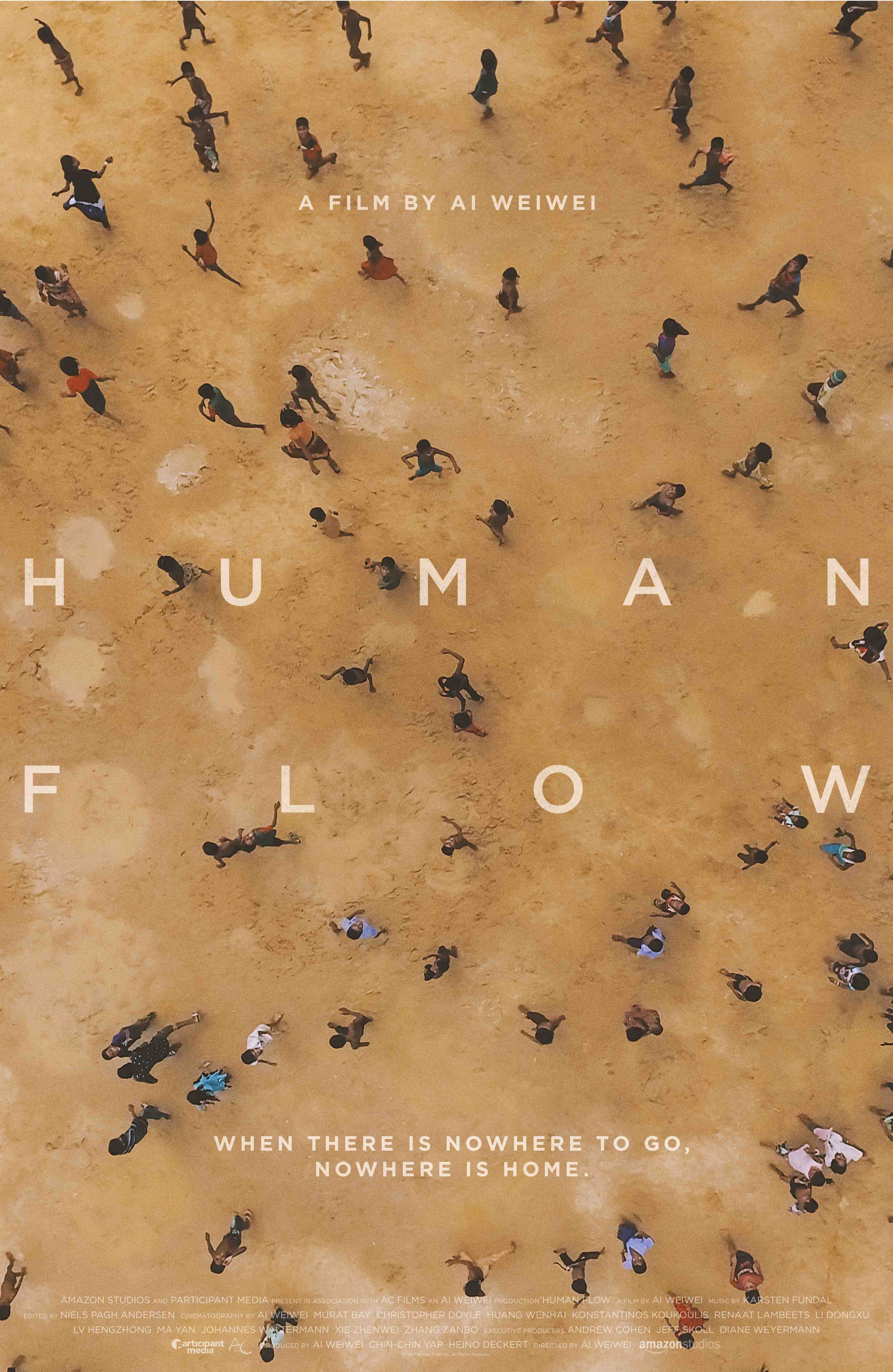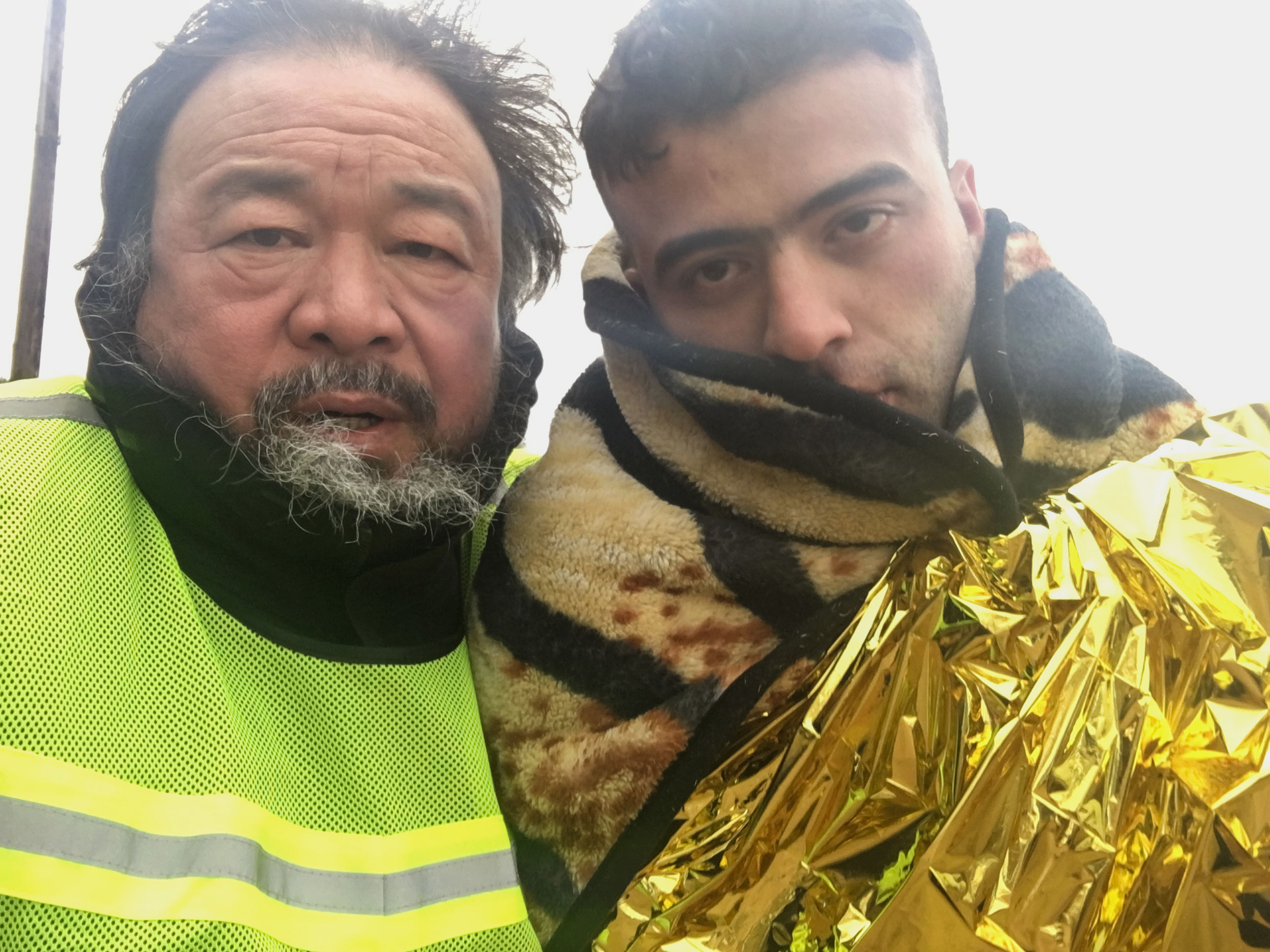By Daniel Walber

Ai Weiwei’s Human Flow is the result of a truly enormous undertaking. Spread across four continents, the film is a distillation of the current refugee crisis. All of it. Rather than focus on a single geographic region or the fallout from a particular international conflict, this is a whirlwind tour of the entire global situation. Its scenes from the US-Mexico Border to the Mediterranean, Sub-Saharan Africa to Bangladesh. If that sounds like far too much, that’s because it is.
If the purpose were totally aesthetic and metaphorical, a wordless and breathtaking aerial tour of large-scale human movement, the scope might not have been a problem. It might have bypassed the head and gone straight to the heart. But Human Flow tries to have it both ways...
Its many striking, almost anonymous images are accompanied by scattered expert interviews and a glut of intertitles that try to put things in context, yet only further underline how thinly it is stretched. It barely coheres, either visually or narratively, and gets in the way of its own vague, grand vision.
Even at 140 minutes, it can feel as if it were cobbled together in a last-minute rush. Despite the many impressive drone shots, there’s little attempt at a unified visual language; perhaps the inevitable result of its dozen credited cinematographers. The only consistent trope is the artist himself. He gets reverse shots in expert interviews, silently showing his concern. He shows himself helping people off of boats and chatting with residents of refugee camps. Perhaps the most frequent shot is of Ai recording on his iPhone, which frankly seems like a silly use of the higher quality camera on a multi-camera shoot.

The other visual glue holding Human Flow together is the use of intertitles. They alternate between vaguely relevant inspirational quotes and helpful chunks of information, evidently crucial for a film with such a broad scope. Yet, as is often the case, their length and frequency only underlines how inadequate they are at actually telling the story. They cannot make up for the depth lost by cutting so quickly between such dramatically different crises. The occasional lower-third text crawl of a newspaper headline only makes things worse.
By the time it’s over, it has even lost track of its central conceit. A major selling point for including the global scope of the refugee crisis, presumably, is its levelling potential. Every refugee is in need of support and concern, not just those closest to Europe and most prevalent in the news. Yet it doesn’t turn out that way. Midway through, Ai makes a trip to Africa to discuss the underreported fact that 26% of the world’s refugees are there, having fled their homes for a wide variety of reasons that include climate change. But he cuts back to the Mediterranean soon after. An early sequence about the flight of the Rohingya from Myanmar, displaced by the genocidal acts of the military junta, feels especially horned in.
And so Human Flow is something of an interesting test case. “Raising awareness,” as a goal in and of itself, is not always especially valuable. But on a global scale it becomes almost an abstraction, removing any narrative specificity from the most affected people and obscuring any real understanding of a crisis.
Release: In limited theatrical release. Will be available to stream on Amazon soon, though no date appears to have been set yet.
Oscar Chances: Not great. The film is getting good reviews, but Ai Weiwei is primarily thought of as an artist rather than a documentarian. Amazon did win a nomination for I Am Not Your Negro last year, but my guess is that they'll have a much better shot with Oscar-nominee Matthew Heineman's City of Ghosts.